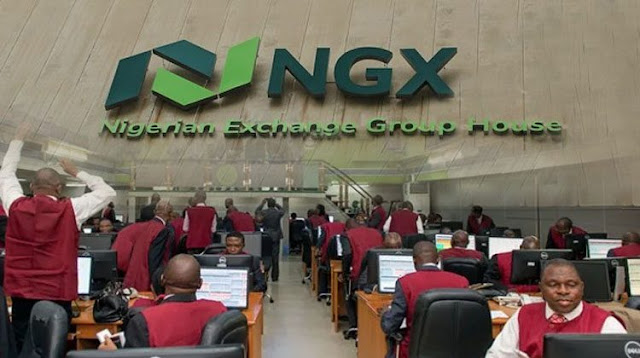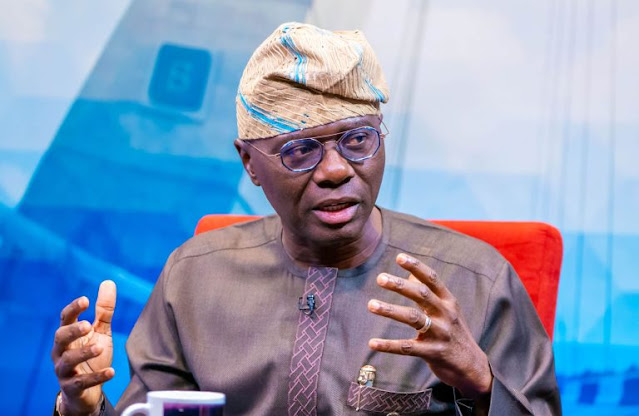The Nigerian stock market continued its bullish run on Wednesday, September 10, 2025, as the Nigerian Exchange Limited (NGX) All-Share Index (ASI) recorded a gain of 0.41%, closing at 97,456.22 points. This positive performance marked the second consecutive day of gains, reflecting sustained investor confidence in the market despite looming uncertainties surrounding the upcoming Monetary Policy Committee (MPC) meeting of the Central Bank of Nigeria (CBN). The market’s upward trajectory was driven by strong performances in key sectors, including banking, consumer goods, and industrial stocks, with notable contributions from companies such as Zenith Bank, Oando Plc, and Dangote Cement.
Market Performance: A Detailed Overview
The NGX ASI, a benchmark index that tracks the overall performance of listed equities on the Nigerian Exchange, rose by 398.02 points, equivalent to a 0.41% increase, to settle at 97,456.22 points. This followed a similar gain on the previous trading day, signaling a renewed optimism among investors. The market capitalization, which measures the total value of all listed companies, also appreciated by N162 billion, reaching N55.848 trillion. This growth in market capitalization underscores the increasing value of equity investments and reflects positive investor sentiment in the Nigerian market.
Trading activity on the day was robust, with a total of 425.72 million shares valued at N8.59 billion exchanged in 8,863 deals. This represented a significant uptick in trading volume compared to the previous session, where 405.30 million units worth N6.52 billion were traded in 8,429 deals. The increase in both volume and value of trades highlights heightened market activity, likely driven by bargain-hunting investors capitalizing on attractive stock valuations.
Among the standout performers, Oando Plc emerged as a key driver of the market’s gains, posting an impressive 9.92% increase in its share price to close at N77.50 per share. This surge was attributed to strong investor interest in the energy sector, particularly in oil and gas companies, amid rising global crude oil prices and optimism about Nigeria’s energy reforms. Other notable gainers included Consolidated Hallmark Insurance, which rose by 9.09%, and The Initiates Plc, which gained 8.33%. These performances reflect the diversity of sectors contributing to the market’s upward momentum.
On the downside, some stocks experienced declines, with Ellah Lakes Plc leading the losers’ chart with a 9.88% drop in its share price, closing at N3.74 per share. Other notable decliners included Sunu Assurances, which fell by 9.63%, and Regency Alliance Insurance, which depreciated by 8.00%. Despite these losses, the overall market sentiment remained positive, as the number of advancing stocks outnumbered decliners, with 31 gainers compared to 19 losers.
Sectoral Performance: Banking and Consumer Goods Lead the Charge
Sectoral indices also reflected the bullish sentiment, with most sectors recording gains. The NGX Banking Index led the pack, rising by 1.90%, driven by strong performances from major banks such as Zenith Bank and United Bank for Africa (UBA). The banking sector has been a focal point for investors, buoyed by expectations of improved financial performance and resilience in the face of economic headwinds. The Consumer Goods Index followed closely, gaining 1.62%, with companies like Nestlé Nigeria and Nigerian Breweries contributing to the sector’s positive performance.
The Industrial Goods Index also saw a modest gain of 0.31%, supported by demand for shares of Dangote Cement, a leading player in the cement manufacturing industry. The Insurance Index rose by 0.86%, reflecting investor confidence in the sector’s stability and growth potential. However, the Oil & Gas Index remained flat, as gains in stocks like Oando were offset by losses in other energy-related companies.
The strong sectoral performance underscores the resilience of the Nigerian stock market, even as investors navigate uncertainties in the broader economy. Analysts attribute the market’s positive momentum to a combination of factors, including improved corporate earnings, attractive dividend yields, and strategic portfolio adjustments by institutional investors.
Market Dynamics: Key Drivers of the Rally
Several factors contributed to the Nigerian stock market’s sustained rally. First, the anticipation of the CBN’s MPC meeting, scheduled for later in September 2025, has kept investors on edge. The MPC, which sets monetary policy directions for the country, is expected to address critical issues such as inflation, interest rates, and foreign exchange management. Investors are particularly focused on whether the CBN will maintain its tight monetary policy stance or introduce measures to stimulate economic growth.
Nigeria’s inflation rate, which stood at 32.15% in August 2025, remains a significant concern for policymakers and investors alike. The CBN has adopted a hawkish approach in recent months, raising the Monetary Policy Rate (MPR) to curb inflationary pressures and stabilize the naira. However, high interest rates have increased borrowing costs for businesses, impacting corporate profitability and economic growth. Investors are hopeful that the upcoming MPC meeting will provide clarity on the CBN’s policy direction, particularly regarding interest rates and liquidity management.
Another key driver of the market’s performance is the sustained interest in fundamentally strong stocks. Companies with robust financials, consistent dividend payments, and growth potential have attracted significant investor interest. For instance, Zenith Bank’s strong performance is linked to its solid earnings and reputation as a reliable dividend-paying stock. Similarly, Oando Plc’s rally reflects investor optimism about the company’s strategic initiatives in the energy sector, including its recent investments in upstream oil and gas operations.
Global economic factors also played a role in shaping market sentiment. Rising crude oil prices, driven by geopolitical tensions and supply constraints, have bolstered investor confidence in Nigeria’s oil-dependent economy. As a major oil-producing nation, Nigeria benefits from higher oil revenues, which could improve government finances and support economic stability. This positive spillover effect has boosted demand for energy stocks like Oando and Seplat Energy.
Investor Sentiment and Market Outlook
The sustained rally in the Nigerian stock market reflects a cautious optimism among investors, despite macroeconomic challenges such as high inflation, currency volatility, and elevated interest rates. Analysts note that the market’s positive performance is a testament to its resilience and the growing confidence in Nigeria’s long-term growth prospects. However, investors remain vigilant, as the outcome of the MPC meeting could significantly influence market dynamics.
Market analysts at Cordros Research, a leading investment firm, attributed the bullish sentiment to bargain-hunting activities by investors seeking undervalued stocks. “The market is seeing sustained interest in stocks with strong fundamentals, particularly in the banking and consumer goods sectors,” the firm noted in a report. “Investors are positioning themselves ahead of the MPC meeting, anticipating potential policy shifts that could impact asset prices.”
Looking ahead, analysts expect the market to maintain its positive trajectory in the short term, driven by continued demand for high-quality stocks and expectations of improved corporate earnings. However, they caution that any unexpected policy tightening by the CBN could dampen investor sentiment and trigger profit-taking activities. Additionally, global economic developments, such as fluctuations in oil prices and geopolitical risks, could influence market performance.
The Role of the MPC Meeting in Shaping Market Expectations
The upcoming MPC meeting is a critical event for the Nigerian financial markets, as it will provide insights into the CBN’s strategy for addressing inflation, exchange rate volatility, and economic growth. The CBN has faced significant challenges in recent years, including managing the naira’s value amid foreign exchange shortages and addressing inflationary pressures driven by rising food and energy costs.
At its last meeting in July 2025, the MPC raised the MPR by 50 basis points to 26.75%, signaling its commitment to controlling inflation. However, this decision has sparked debates among economists and investors, with some arguing that further rate hikes could stifle economic growth, while others believe that aggressive monetary tightening is necessary to stabilize the economy.
Investors are particularly interested in whether the CBN will adjust its foreign exchange policies to improve liquidity in the forex market. The naira has faced significant pressure in recent months, depreciating against major currencies and contributing to imported inflation. A more flexible exchange rate regime or increased dollar supply could boost investor confidence and support the stock market’s rally.
Broader Economic Context: Challenges and Opportunities
The Nigerian economy is at a critical juncture, grappling with a combination of domestic and global challenges. High inflation, driven by supply chain disruptions and rising energy costs, has eroded purchasing power and increased the cost of living for millions of Nigerians. The government’s efforts to remove fuel subsidies and unify the exchange rate have also introduced short-term economic pains, although these reforms are expected to yield long-term benefits.
Despite these challenges, there are opportunities for growth. The government’s push for economic diversification, particularly in agriculture, technology, and renewable energy, is gaining traction. The stock market, as a barometer of economic health, reflects these dynamics, with investors showing interest in sectors aligned with the government’s diversification agenda.
The banking sector, for instance, remains a cornerstone of the Nigerian economy, providing critical financing for businesses and supporting economic growth. The strong performance of banks like Zenith and UBA highlights their resilience and ability to navigate a challenging operating environment. Similarly, the consumer goods sector, which includes companies like Nestlé and Nigerian Breweries, continues to attract investor interest due to its defensive nature and consistent demand for essential products.
Conclusion: A Market Poised for Growth Amid Uncertainty
The Nigerian stock market’s 0.41% gain on September 10, 2025, underscores its resilience and potential for growth, even in the face of macroeconomic uncertainties. The strong performances of stocks like Oando, Zenith Bank, and Dangote Cement reflect investor confidence in fundamentally sound companies and sectors. As the market awaits the outcome of the CBN’s MPC meeting, investors are positioning themselves to capitalize on opportunities while remaining mindful of potential risks.
The sustained rally in the NGX ASI and market capitalization highlights the market’s ability to weather economic challenges and deliver value to investors. However, the road ahead will depend on a delicate balance of monetary policy decisions, global economic trends, and domestic reforms. For now, the Nigerian stock market remains a beacon of opportunity, offering investors a chance to participate in the country’s growth story while navigating the complexities of an evolving economic landscape.
As the MPC meeting approaches, all eyes will be on the CBN’s next moves, which could either reinforce the market’s bullish momentum or introduce new challenges. For investors, the key will be to remain agile, focusing on fundamentally strong stocks while staying attuned to macroeconomic developments. The Nigerian stock market, with its vibrant mix of opportunities and risks, continues to be a dynamic arena for wealth creation and economic participation.






